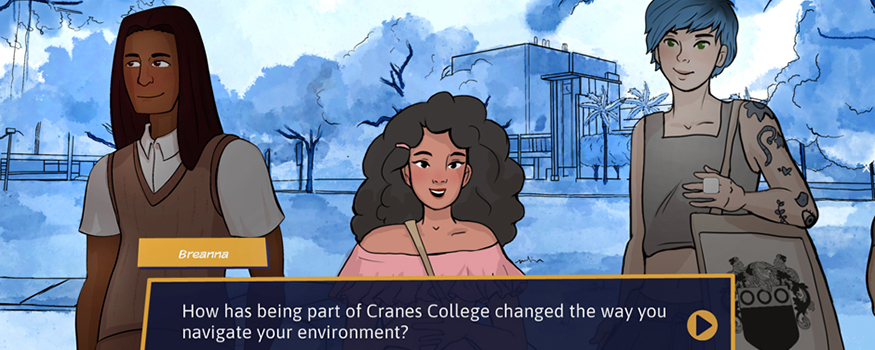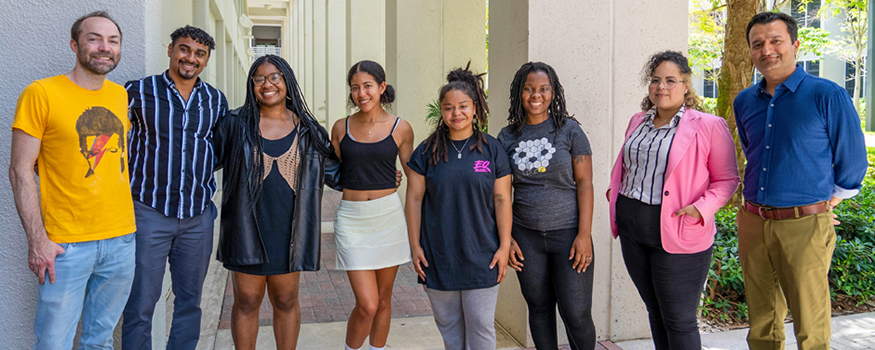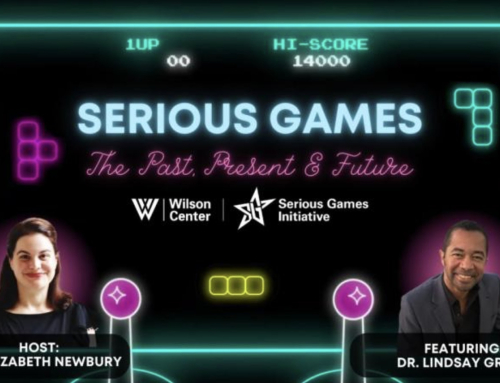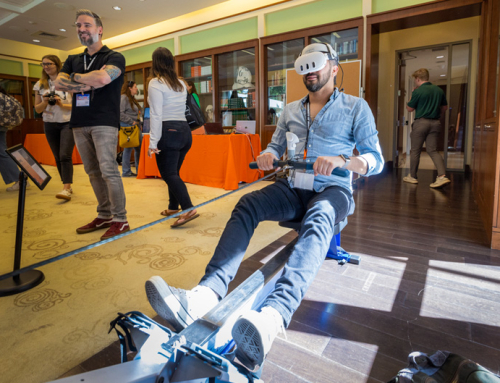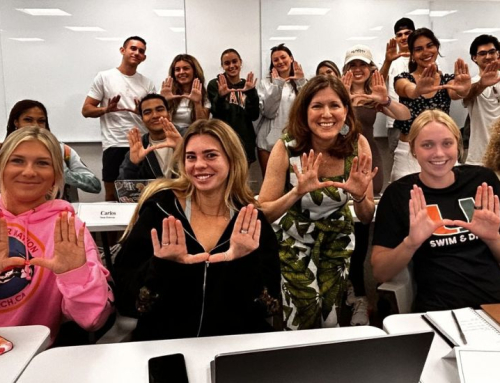By Janette Neuwahl Tannen
A new video game crafted by students and faculty members at the University of Miami delves into difficult conversations about identity and discrimination to illustrate more accepting responses.
Throughout her educational experiences, University of Miami alumna Phidela Cheng often felt that some of her classmates could not look beyond her Asian heritage. There were jokes about the shape of her eyes, what her family ate for dinner, and insinuations that her ancestors created the COVID-19 virus.
Fabrizio Darby, an alumnus who hails from Jamaica, will never forget the time a classmate assured him that he could just tell the rest of his study group that he was Indian, rather than revealing his family’s African heritage.
When both learned they could join a University of Miami team working to create a video game that might help dispel some of these hurtful comments, they didn’t waste any time. Darby and Cheng are part of a larger group of about 20 writers, developers, designers, and faculty members set this week to release a game called “Answer Campus,” after three years of writing and designing it.
“College is where most people meet or interact with diversity in ethnicity or ideas, and where you start learning and experience new things. But I was often in situations where people were not well-versed in having these discussions,” said Darby, a recent graduate who led a team of writers that crafted the script for Answer Campus. “So, when I had the opportunity to change that, I wanted to embrace it. That’s why I got into the game.”
Funded by the School of Communication’s New Experience Research and Design Lab, or the NERDLab, the creators hope the game will serve as an antidote to cancel culture, and instead bring about more tolerance on college campuses. Answer Campus will soon be available to download on Steam, an online gaming platform. And the team hopes that colleges will use it during first-year orientations.
“We are trying to educate players in social awareness, so it is built around the ideas of compassion and respect,” said Clay Ewing, associate professor of interactive media and director of the NERDLab, who developed the game and started the project three years ago with Darby.
Designed as a first-person interactive experience, the game places players in the first week of college, and it includes classroom situations where tough conversations about racial, ethnic, gender, or religious identity arise, along with discussions about physical and mental disabilities. For instance, in one scenario, a professor decides to use the N-word when reading “To Kill a Mockingbird” in class, making a Black student uncomfortable. Then, the player is given a group of options about how to respond to the given situation. Those who choose the more accepting path will gain a friend or maintain an existing relationship that helps them complete a larger mission. But even if players choose a combative or detached response, they will be able to observe how a situation could worsen, and learn from it, which is the ultimate goal, according to the creators.
“This is an easier, more nuanced way to have these conversations that people need to have,” said Emilie Duran, a graduate of the bachelor’s degree in interactive media program, who worked on the game. “It’s a chance to explain everything that minority individuals go through, like medical racism, and how much these things affect us and how they wear us down over time.”
Jaswinder Bolina, an associate professor and chair of the Department of English in the College of Arts and Sciences, guided the writers in weekly meetings and copyedited the scripts.
“Answer Campus is a chance to explore touchy subjects like micro and macroaggressions in a safe space, where students can learn strategies for navigating those tough situations,” he said. “There’s no single right answer, but there are better ways to diffuse a tense situation.”
The entire game game is about 30 minutes, with about eight different situations that were created based on some of the writer’s own experiences, Ewing pointed out. The students hope to expand the game, based on how players respond to the first version, noted Lorena Lopez, an interactive media lecturer who led the game’s team of visual arts and designers.
“We want this to be a game that can expand and scale as the player goes into their second year of college,” Lopez said. “There are a lot of ways we can take this and we’re very excited about it. We had a lot of positive feedback from user testing and on-campus demonstrations this spring.”
Alumna Lesha Jackson was part of the writer’s group, which includes members from a variety of different backgrounds and majors that met for the past two academic years. Jackson, who majored in public health and microbiology and immunology, said being part of the Answer Campus team was a rewarding experience.
“I feel very hopeful, excited, and gratified in the sense that we were able to create this game on campus and we are able to relate to it because it’s diverse and it’s about a lot of different people on and off campus,” Jackson said.
“We hope to be able to take it to the next level,” Darby added. “So, that universities can use this game and students can learn from it.”
Check out Answer Campus here.
This story originally appeared at https://news.miami.edu/stories/2023/08/game-hopes-to-tackle-tough-talks-and-tout-tolerance.html.
